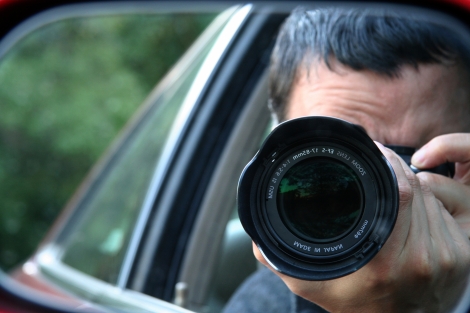 If you have filed a claim for long-term disability insurance benefits you may be watched and filmed by a private investigator hired by the insurance company. Perhaps in today’s world where everybody is constantly within the eye of a camera it no longer seems as intrusive, but it still is disconcerting for someone with a work disability to suffer the further indignity of covert video surveillance. It’s a reality, though. While it is not by any means done in all cases, nor even in anything close to a majority of cases, it is done often enough for a disability insurance claimant to use caution and just good old common sense.
If you have filed a claim for long-term disability insurance benefits you may be watched and filmed by a private investigator hired by the insurance company. Perhaps in today’s world where everybody is constantly within the eye of a camera it no longer seems as intrusive, but it still is disconcerting for someone with a work disability to suffer the further indignity of covert video surveillance. It’s a reality, though. While it is not by any means done in all cases, nor even in anything close to a majority of cases, it is done often enough for a disability insurance claimant to use caution and just good old common sense.
Rarely does the insurance company video of a claimant produce any meaningful information to anyone other than the insurance company who paid for it. Surveillance is generally conducted in a case where the insurance company has already determined that long term disability insurance benefits will be terminated, so scenes of a claimant walking into the grocery store, driving to a doctor’s appointment, picking up yard debris, visiting with a friend, or walking a dog allows the insurance company to make the implausible leap to conclude the claimant can resume a forty hour work week. To most of the rest of the world it demonstrates the claimant is not dead.
Long-term disability benefits from an employer’s insurance benefits package are only granted when a claimant can no longer perform the duties of his or her occupation 40 hours per week. This has nothing to do with driving to Costco or the gas station, and the actual treating doctors as well as the judges know that.
However, driving to Costco and then loading your SUV to the brim with bulky items weighing forty to one hundred pounds when you are claiming disabling chronic back pain will make a difference to reviewing doctors and judges. And certainly (a true story) driving to your own business (which was not disclosed) and loading restaurant supplies into the store will bring a claim to a screeching halt (and perhaps worse if state and federal disability benefits are also involved). Thus, the need for common sense. If you have the physical and mental capacity to perform your occupation full time, you are not going to live your life with limitations. Some camera somewhere is going to document this.
With the proliferation of new technology, such as small drone quadcopters, it will be cheaper and easier than ever for insurance companies to conduct surveillance. With advances in surveillance technology, you may be filmed any time you are out, on or off your property, like it or not. The law regarding such intrusive observation through new widely available technology is evolving, but don’t count on any serious restrictions in surveillance. Privacy is increasingly an artifact of the twentieth century.
Additionally social media such as Facebook provides a gold mine of video and photos of a claimant’s (often exaggerated) active and wonderful life. Perhaps this form of selfie surveillance is in fact the most damning and useful surveillance available to an insurance company at no cost. You can safely bet on any social media you have made available on the internet being studied by insurance claim managers. Back to common sense. Think before you post.
The take away. Yes you may be watched. But if you are merely functioning and living your life within the limits of your disabling condition, surveillance from any source need not preoccupy your thoughts.
Randy Noah, a lawyer specializing in the representation of individuals denied long-term disability insurance benefits. For more information please visit prandallnoah.com.
